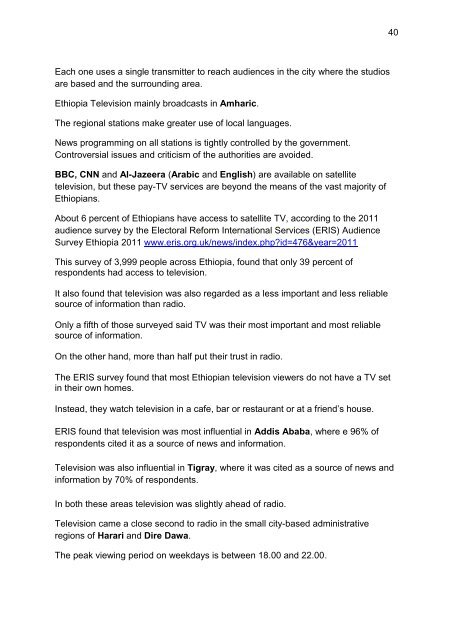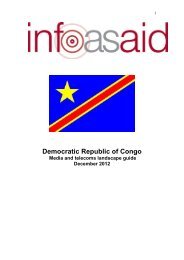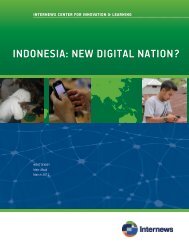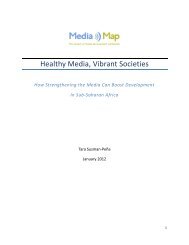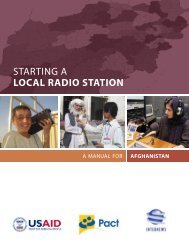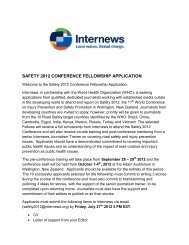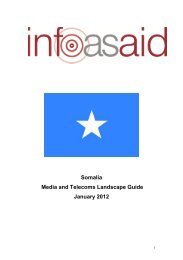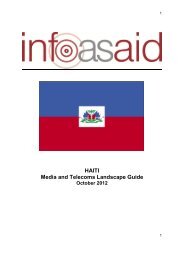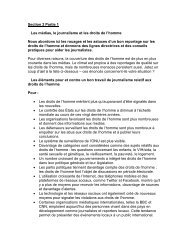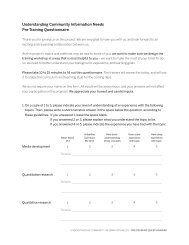Ethiopia Media and Telecoms Landscape Guide - Infoasaid
Ethiopia Media and Telecoms Landscape Guide - Infoasaid
Ethiopia Media and Telecoms Landscape Guide - Infoasaid
You also want an ePaper? Increase the reach of your titles
YUMPU automatically turns print PDFs into web optimized ePapers that Google loves.
40Each one uses a single transmitter to reach audiences in the city where the studiosare based <strong>and</strong> the surrounding area.<strong>Ethiopia</strong> Television mainly broadcasts in Amharic.The regional stations make greater use of local languages.News programming on all stations is tightly controlled by the government.Controversial issues <strong>and</strong> criticism of the authorities are avoided.BBC, CNN <strong>and</strong> Al-Jazeera (Arabic <strong>and</strong> English) are available on satellitetelevision, but these pay-TV services are beyond the means of the vast majority of<strong>Ethiopia</strong>ns.About 6 percent of <strong>Ethiopia</strong>ns have access to satellite TV, according to the 2011audience survey by the Electoral Reform International Services (ERIS) AudienceSurvey <strong>Ethiopia</strong> 2011 www.eris.org.uk/news/index.php?id=476&year=2011This survey of 3,999 people across <strong>Ethiopia</strong>, found that only 39 percent ofrespondents had access to television.It also found that television was also regarded as a less important <strong>and</strong> less reliablesource of information than radio.Only a fifth of those surveyed said TV was their most important <strong>and</strong> most reliablesource of information.On the other h<strong>and</strong>, more than half put their trust in radio.The ERIS survey found that most <strong>Ethiopia</strong>n television viewers do not have a TV setin their own homes.Instead, they watch television in a cafe, bar or restaurant or at a friend’s house.ERIS found that television was most influential in Addis Ababa, where e 96% ofrespondents cited it as a source of news <strong>and</strong> information.Television was also influential in Tigray, where it was cited as a source of news <strong>and</strong>information by 70% of respondents.In both these areas television was slightly ahead of radio.Television came a close second to radio in the small city-based administrativeregions of Harari <strong>and</strong> Dire Dawa.The peak viewing period on weekdays is between 18.00 <strong>and</strong> 22.00.


